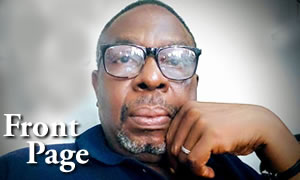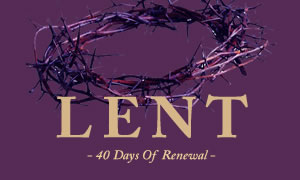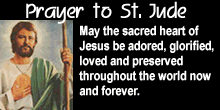


 From: Just Business: Christian Ethics for the Marketplace
From: Just Business: Christian Ethics for the Marketplace
No one trivial lie undermines the liar’s integrity. But the problem for liars is that they tend to see most of their lies in this benevolent light and thus vastly underestimate the risks they run. SISSELA BOK
Food gained by fraud tastes sweet to a man, but he ends up with a mouth full of gravel. PROVERBS 20:17
MEDICINE FOR WHAT AILS YOU. One of the earliest national advertising campaigns commenced in 1875 and ran for nearly half a century. “Lydia Pinkham’s Vegetable Compound” was promoted as the “positive cure for all female complaints” (understood to include everything from menstrual cramps to a prolapsed uterus). Both the bottle and the print advertisement had a photograph of Mrs. Pinkham, the perfect image of a gray-haired grandmother. Testimonials were given by women about the product’s curative powers.
There were three things, however, about which the public was unaware. First, the product had an 18 percent alcohol content. Second, Lydia Pinkham had died years before. And third, the company spent 75 percent of its revenues on advertising (note 1).
Consumers doubt claims made by advertisers, government officials investigate statements made by corporate officials, and labour negotiators question whether they should ever be anything but sceptical about claims made by their management counterparts. Even business professors have reason to wonder whether they should trust their students. Studies indicate that business majors are more likely to cheat on exams or plagiarize term papers than other college students (note 2). As an accounting student at the University of Dayton rationalized, “When you get to college, you don’t follow the same rules [on honesty] your parents laid down” (note 3). The temptation to accelerate such “moral adjustments’ only increases after graduation: sales quotas must be met, hoped-for promotions obtained, and shipment deadlines met. Unfortunately, honesty is often the first casualty in such pressure-cooker situations.
Honesty, deception and disclosure are concepts that are often difficult to apply with precision in the business environment. For instance, were the Lydia Pinkham’s Vegetable Compound ads deceitful or merely coy? What duty, if any, did the company have to disclose full information to the consuming public? Was its only ethical obligation negative in nature – not to communicate misinformation – or did it have affirmative duties to reveal relevant information as well? These questions underscore the point that rule-book ethics – a list of simple “dos and don’ts” to be applied to every situation – is woefully inadequate. Truth telling, dishonesty and concealment are complex subjects that require more sophisticated analysis.
Honesty
CHRISTIAN CON MAN. In six years John Bennett built his Philadelphia-based New Era Philanthropy Foundation into a powerhouse charity. Claiming to be a broker for several anonymous donors, Bennett first gave away modest sums of money to several non-profit organizations. Later he asked these same organizations to “invest” so that his foundation could double their income within six months. For a few years the plan worked. However, when the Securities and Exchange Commission began to investigate, Bennett’s house of cards collapsed.
After New Era declared bankruptcy, Bennett admitted to the SEC that the anonymous donors never existed. “Investors” then were owed over $550 million, but New Era had assets of only $80 million. It was alleged that Mr. Bennett had secretively taken over $4 million for personal use. Included among those who were tricked: Young Life, the University of Pennsylvania, World Vision, Wheaton College and the Academy of Natural Sciences of Philadelphia. “I had every reason to trust him,” said the president of the Seminary of the East. “He had a reputation for Christian values and commitment to Christ.” (note 4).
Ethicist Lewis Smedes contends that honesty is crucial for three reasons: it builds trust, establishes community and protects the dignity of the audience (note 5).
Trust. Without honest communication, trust is impossible: all cooperative ventures require some measure of trust. Indeed, well-placed trust translates into profit. Accountants can even quantify the value of honesty on a company’s balance sheet as part of its “goodwill”(note 6). Partners rely on each other to fulfil promises, supervisors expect subordinates to fulfil their tasks, and buyers depend on suppliers to ship quality goods in a timely manner.
Studies indicate that workers who believe that their employers are truthful work harder. When trust is breached, however, employee productivity slackens (note 7). Norman Bowie contrasts Chrysler employees, whose quality of work suffered as a result of their distrust of management at the bargaining table a number of years ago, with General Motors’s Saturn employees, whose high level of trust in the corporation has translated into superior quality and productivity (note 8). Another observer compares trust to a bank account. “Reputational capital,” built up through many instances of truth telling, can be overdrawn by a single act of deception (note 9). This is as true in business as it is in marriage. And since few lies exist in isolation, the first untruth “must be thatched with another or it will rain through” (note 10).
Community. The second value of honesty is that it fosters community. When individuals trust each other, relational networks are built. As trust is more highly prized, greater expectations for honesty are placed on an expanding web of individuals – managers, marketers and accountants. This produces communities of trust. As Sissela Bok wisely observes, “The veneer of social trust is often thin”¦Trust is a social good to be protected just as much as the air we breathe or the water we drink. When it is damaged, the community as a whole suffers; and when it is destroyed, societies falter and collapse” (note 11).
PLAY THE GAME. Rita is a new manager with Crane Construction Company. One of her first tasks is to formulate the annual budget for her division. Over lunch, a peer advises her to “be sure to inflate your estimated expenses by 15 percent and to ask for a few positions you don’t really need. Upper management will chop them out anyway. Also, don’t worry too much about overspending. The company gives no incentives for carrying over surplus at the end of the fiscal year and gives no rewards for under-spending.”
Communities that are deficient in honesty quickly become cultures of deception. Rita’s company will no doubt pay several long-term consequences as new employees learn that fiscal honesty is regarded as being naive. The results are all too common in corporate life – waste, closed communications, empire building, slush funds, turf wars, excessive documentation and intrigue. Companies that operate in this manner are inherently unstable because fear of embarrassing discoveries looms in every corner. Cover-ups blossom. As one author observes: “Without trust, we change from a community to a pack, from a society to a gang” (note 12).
Dishonesty also “debases the currency of language, making business communication less efficient and more cumbersome” (note 13). Since we trust each other less, more attorneys are needed to review documents. Is it any coincidence that as the virtues of truthfulness and trust have decreased in American society, the number of attorneys has skyrocketed to over 850,000? Similarly, since 24 percent of all resumes contain substantial false information (note 14), is it any wonder that more sophisticated human resource personnel are needed to ferret out the truth about applicants? College admissions officers now find it necessary to double-check the veracity of financial aid claims of incoming students. This “truth audit” function not only indicates an erosion of community but also imposes a huge cost – in essence, a tax – on doing business.
It is no exaggeration to conclude that capitalism itself is at risk when honesty and trust are disregarded. Witness certain nations in Africa, the former Soviet Union and Asia where corruption is endemic. Cheating, bribing and distrust erode the very foundation of their economic systems (note 15). As English author Samuel Johnson once observed, even demons do not lie to one another, because the society of hell could not exist without truthfulness (note 16).
Dignity. The third value of honesty is that it respects the dignity of those to whom communications are directed. As image-bearers of God, recipients are entitled to accurate information so that they are able to make free and intelligent choices. In the medical field, doctors are required to provide patients with full data to ensure that all consent is fully informed. The concept of “informed consent” also applies to the marketplace, where the dignity of decision-makers (for example, consumers, shareholders, employees, partners) must be protected by giving them sufficient information to preserve their autonomous choices.
FOOL’S GOLD. “The precious metals market was rocked when the principal managers of International Nesmont Industrial Corporation, a Canadian gold-refining firm selling stock over the New York Stock Exchange, were charge with criminal fraud. For six months before being discovered they had stockpiled brass instead of gold bars.” (note 17).
One ethicist has gone so far as to compare dishonesty to physical assault: both rob recipients of their freedom and dignity (note 18). No doubt investors in the Canadian gold-refining company felt so violated.
Adam Smith, the father of capitalism, prized the notion of informed consent. For transactions to be truly voluntary, both parties must have access to accurate information. Otherwise they cannot deal for mutual benefit. While it may seem ironic to those who view capitalism as an incubator for dishonest practices, Smith taught that the market operates properly only if honest dealings are the norm.
To be continued


I have been thinking a great deal about my experience at Reconciliation this past Saturday. I felt an intense and unexplainable urge to go and confess my sins when I woke up that morning. I try to go every six weeks or so, but this was no routine visit to the priest for me. I needed to unburden myself of the numerous venial sins I had committed since I last participated in this Sacrament.
Purest Gold: God's Refining Fire in our Lives »
After salvation, many young Christians wonder if there's anything more to their newfound faith than just the security blanket of "being a Christian." Time and time again, God shows himself as a "refiner," and our lives are as gold. God started leading me in this study to understand what He was doing in my life, as well as in the lives of others.
Picking up my pen to write this column, I couldn’t imagine how time flies. Since the last publication of this column I have gone through a lot, especially the loss of my dear mother to whom I dedicate this article. Not only her, but seems I lost a whole generation of my close family.
How to Achieve Business Excellence »
“Do you see a man who excels in his work? He will stand before Kings; He will not stand before unknown men.” Proverbs 22:29
Spiritual Development for our Youth »
Most of us youth in today's fast moving world are easily thrown off by difficulties and worries.
The theme of conversion is a thread that runs all through Lent, but conversion takes on different aspects throughout the phases of Lent. The first two and a half weeks focused on the interior turning of hearts; the liturgy urges the faithful to reflect and examine consciences thoroughly.
Saint Josephine Bakhita »
Feast Day: February 8
Patron Saint Of: Sudan
Saint Josephine Margaret Bakhita was born around 1869 in the village of Olgossa in the Darfur region of Sudan. She was a member of the Daju people and her uncle was a tribal chief. Due to her family lineage, she grew up happy and relatively prosperous, saying that as a child, she did not know suffering.
Catholics Must Fast More Intensely This Lent»
The Norbertine Canons of St. Michael's Abbey have created this digital Lenten retreat so that you can journey through this holy season alongside them. If you want to have one of your best Lenten seasons yet, join us in our Lenten Program "The Great Fast" - https://theabbotscircle.com/the-great-fast-join
When Your Faith Is Put to the Test - Bishop Barron's Sunday Sermon»
Friends, we come now to the Second Sunday of Lent, and we’re on both dangerous and very holy ground with the first reading from the twenty-second chapter of Genesis. The ancient Israelites referred to it as the “Akedah,” which means the “binding”: Abraham binds and is ready to sacrifice Isaac at God’s command.

Copyright © 2002-2024 THE BEACON INTERNATIONAL CATHOLIC MAGAZINE. All rights reserved.
another mc.rufus interactive web design